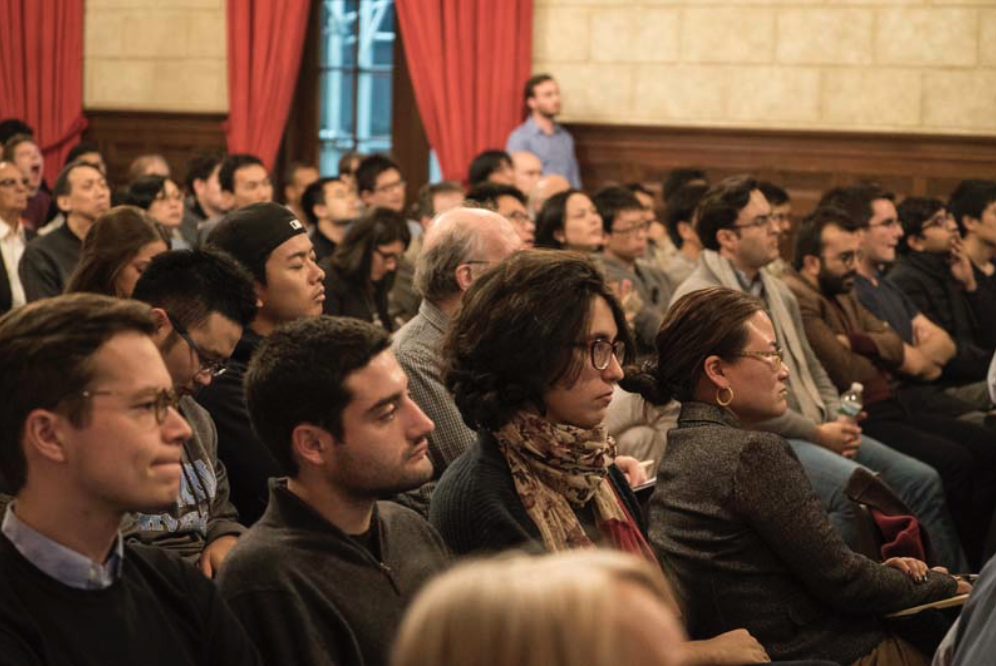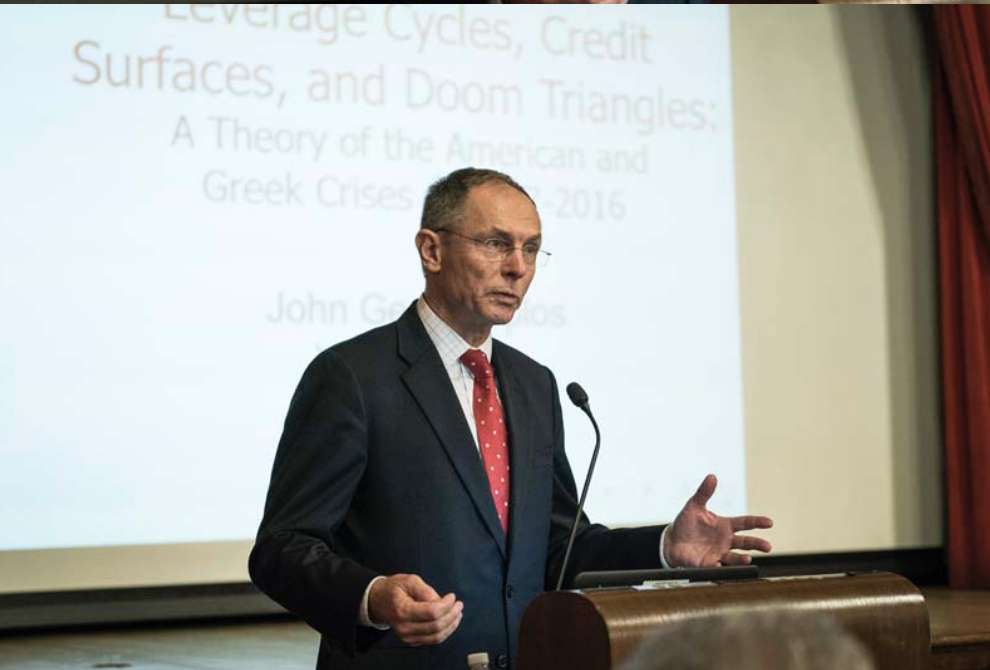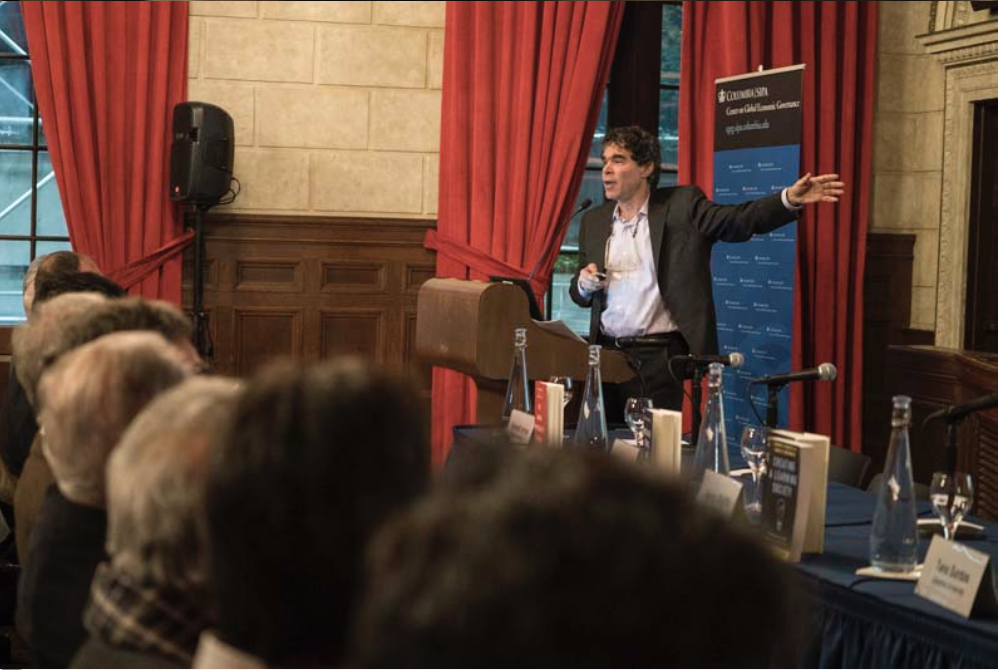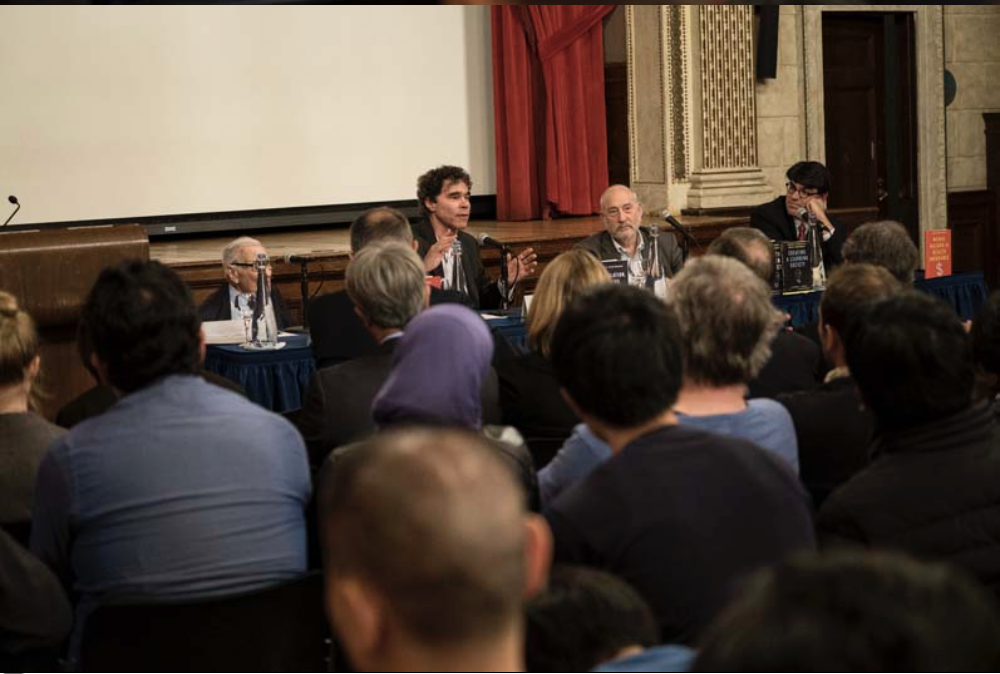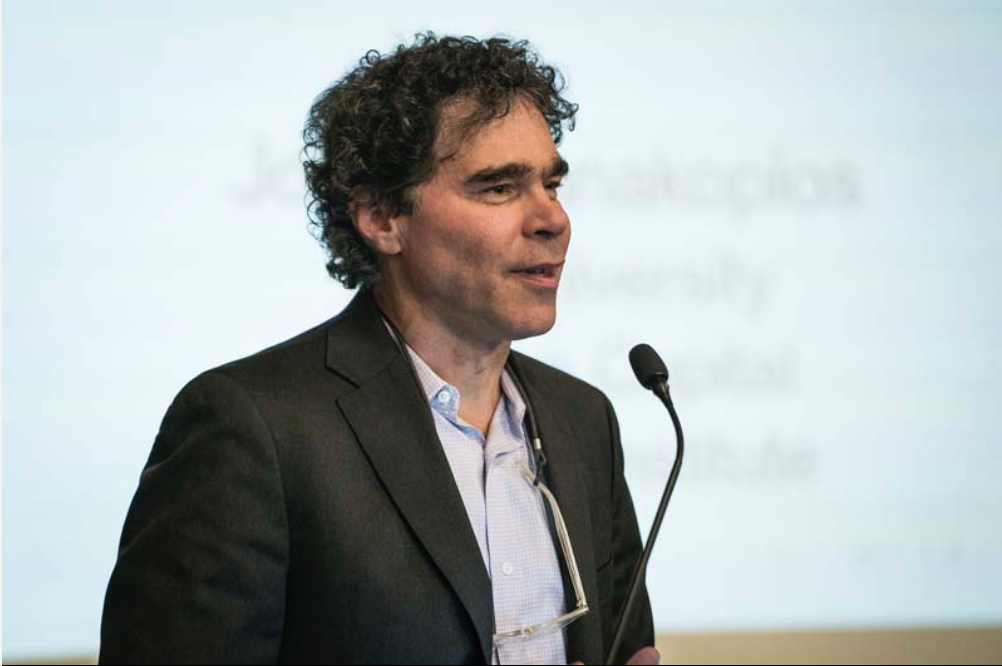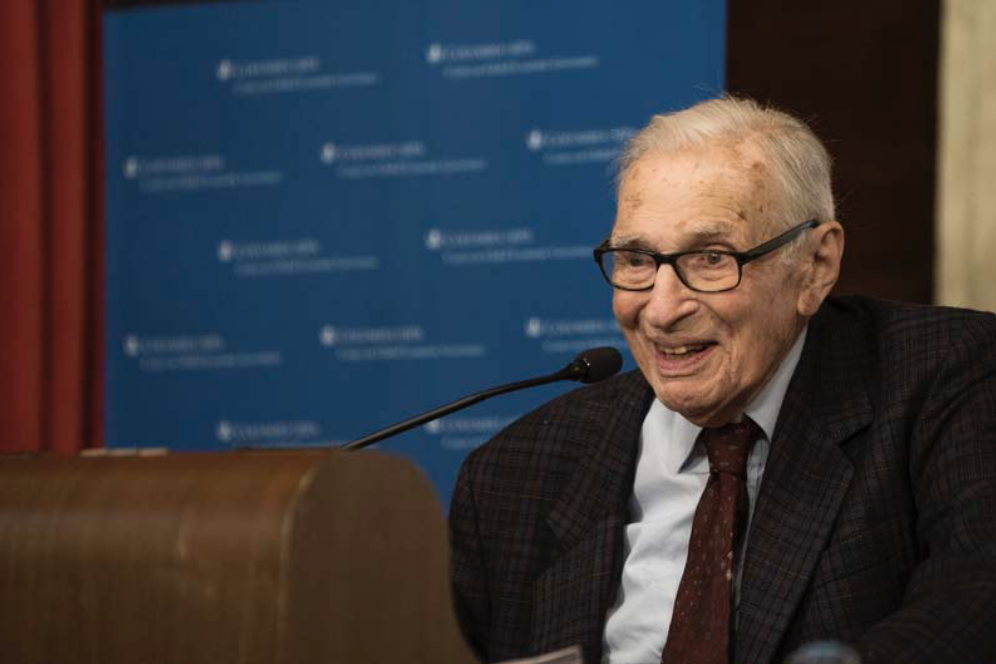The 9th Kenneth J. Arrow Lecture: Credit Surfaces, Leverage Cycles, and Doom Loops
Please join us for the 9th Kenneth J. Arrow Lecture, entitled "Credit Surfaces, Leverage Cycles, and Doom Loops", to be delivered by John Geanakoplos, the James Tobin Professor of Economics at Yale University. Kenneth J. Arrow, Stanford University, Tano Santos, Columbia University, and Joseph E. Stiglitz, Columbia University, will serve as discussants.
The American financial crisis of 2007-09 and the ensuing Great Recession proved that macroeconomic and financial booms and busts can be driven by credit conditions like leverage. The European crisis of 2010-2012 showed that they can also involve a feedback between sovereign debt, corporate debt, and bank debt. In this lecture, Geanakoplos will present a collateral general equilibrium model of credit, default and macroeconomic activity, and argue that to prevent future crises, central banks must end their obsession with riskless interest rates and their refusal to forgive unpayable debts.
The Kenneth J. Arrow Lecture Series: Kenneth J. Arrows work has so deeply shaped the course of economics for the past sixty years that, in a sense, every modern economist is his student. His ideas, style of research, and breadth of vision have been a model for generations of the boldest, most creative, and most innovative economists. His work has yielded such seminal theorems as general equilibrium, social choice, and endogenous growth, proving that simple ideas have profound effects. The Kenneth J. Arrow Lecture Series highlights economists, from Nobel laureates to groundbreaking younger scholars, whose work builds on Arrows scholarship as well as his innovative spirit. The books in the series are an expansion of the lectures that are held in Arrow's honor at Columbia University.
This event is co-sponsored by the Center on Global Economic Governance, the Program for Economic Research, Columbia University Press, and the Initiative for Policy Dialogue.
Registration for this event is required.
To watch the full video of the Arrow lecture please click here.
Speaker Biographies
Kenneth Arrow is the Joan Kenney Professor of Economics and Professor of Operations Research, emeritus at Stanford University. He is a Nobel Prize-winning economist whose work has been primarily in economic theory and operations, focusing on areas including social choice theory, risk bearing, medical economics, general equilibrium analysis, inventory theory, and the economics of information and innovation. He was one of the first economists to note the existence of a learning curve, and he also showed that under certain conditions an economy reaches a general equilibrium. In 1972, together with Sir John Hicks, he won the Nobel Prize in economics, for his pioneering contributions to general equilibrium theory and welfare theory. Professor Arrow has served on the economics faculties of the University of Chicago, Harvard and Stanford. In addition to the Nobel Prize, he has received the American Economic Association's John Bates Clark Medal. He is a member of the National Academy of Sciences and the Institute of Medicine. He received a BS from City College, an MA and PhD from Columbia University, and holds approximately 20 honorary degrees.
John Geanakoplos (b. 1955) received his B.A. in Mathematics from Yale University in 1975 (summa cum laude), his M.A. in Mathematics and his Ph.D. in Economics under Kenneth Arrow and Jerry Green from Harvard University in 1980. He started as an Assistant Professor in Economics at Yale University in 1980, becoming an Associate Professor in 1983, Professor in 1986, and the James Tobin Professor of Economics in 1994. From 1996-2005 he was Director of the Cowles Foundation for Research in Economics. He was a co-founder in 1992, and is still currently co-director, of the Hellenic Studies Program at Yale. He was elected a fellow of the Econometric Society in 1990 and of the American Academy of Arts and Sciences in 1999. He was awarded the Samuelson Prize in 1999 for his work on social security, and was awarded the first Bodossaki Prize in economics in 1994 (for the best economist of Greek heritage under 40). In 1990-1991 and again in 1999-2000 he directed the economics program at the Santa Fe Institute, and was chairman of the science steering committee from 2009-15, and remains an external professor. He spent terms as visiting professor at MSRI in the University of California, Berkeley, at Churchill College, Cambridge, at the University of Pennsylvania, at Harvard, at Stanford, and at MIT. John Geanakoplos’ research is characterized by a unique blend of abstract economic theory and applied problems motivated by personal experience in financial markets. The scope of Geanakoplos’ research is unusually wide, ranging from general equilibrium theory to game theory to macroeconomics and to finance. In 1997 and 2003 he created collateral equilibrium and a theory of the leverage cycle that explains the recent subprime mortgage crisis. From 1990-1994 he was a Managing Director and Head of Fixed Income Research at Kidder, Peabody & Co. He was one of the founding partners in 1995 of Ellington Capital Management, where he remains a partner. In 1970 he won the United States Junior (< 20) Open Chess Championship. His mother, Effie Vranos, was among the first three women to graduate from Clark University, in 1943.
Tano Santos is David L. and Elsie M. Dodd Professor of Finance and Co-Director of the Heilbrunn Center for Graham and Dodd Investing, at Columbia Business School. Professor Santos' research focuses on two distinct areas. A first interest is the field of asset pricing with a particular emphasis on theoretical and empirical models that can account for the predictability of returns, both in the time series and the cross section. A second interest of Professor Santos is applied economic theory, specifically, the economics of financial innovations as well as theory of organizations. He teaches options markets.
Joseph E. Stiglitz is an American economist and a professor at Columbia University. He earned his PhD from MIT in 1967 and is a recipient of the Nobel Memorial Prize in Economic Sciences (2001) and the John Bates Clark Medal (1979). Stiglitz is also a former senior vice president and chief economist of the World Bank and a former member and chairman of the (US president's) Council of Economic Advisers. In 2000, Stiglitz founded the Initiative for Policy Dialogue, a think tank on international development based at Columbia University. Stiglitz has been a member of the Columbia faculty since 2001 and received that university's highest academic rank (university professor) in 2003. Based on academic citations, Stiglitz is the 4th most influential economist in the world today, and in 2011 he was named by Time magazine as one of the 100 most influential people in the world. Known for his pioneering work on assymetric information, Stiglitz's work focuses on income distribution, asset risk management, corporate governance, and international trade. He is the author of numerous books, and several bestsellers. His most recent title is The Great Divide: Unequal Societies and What We Can Do About Them (2015).

